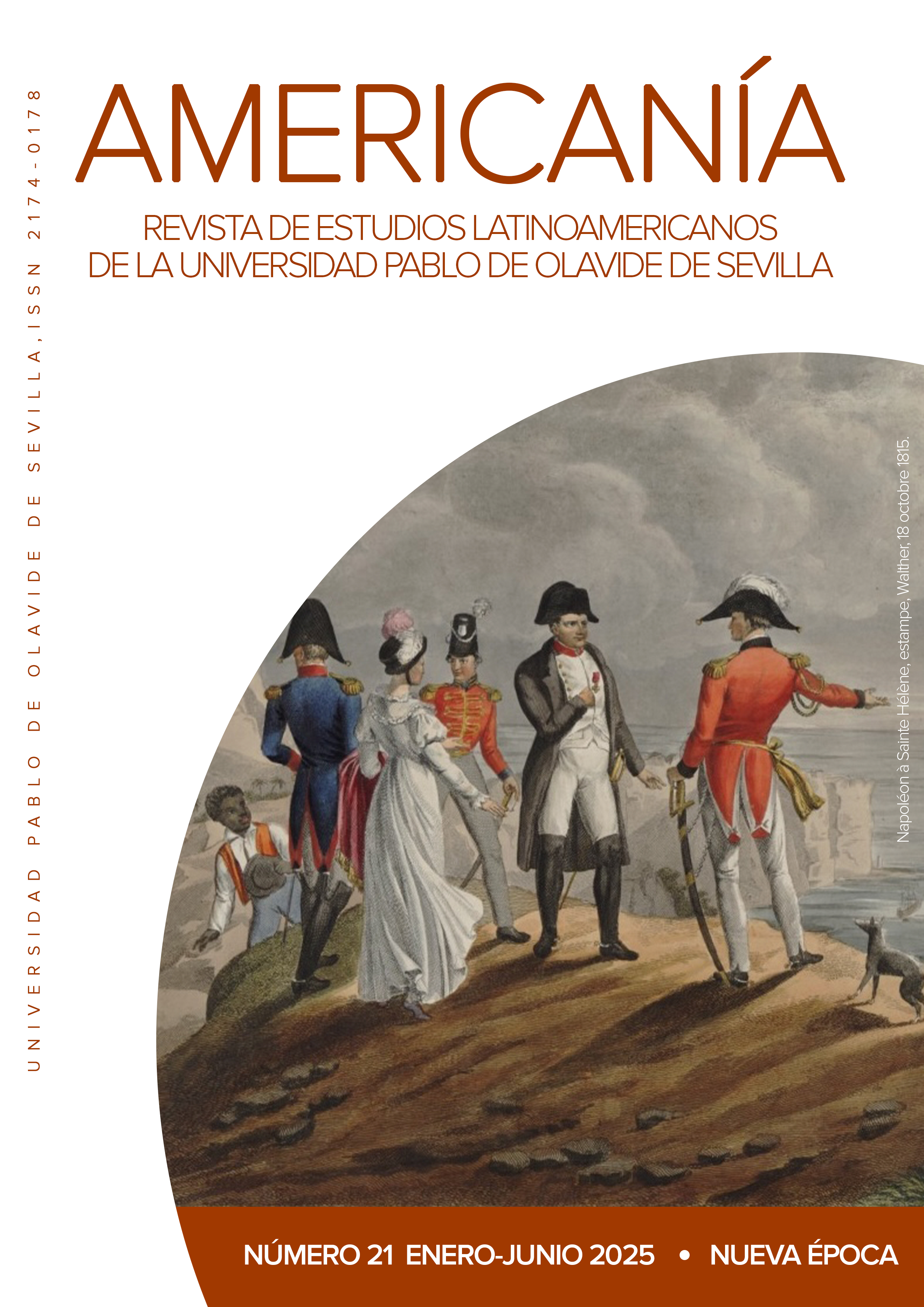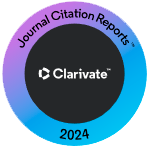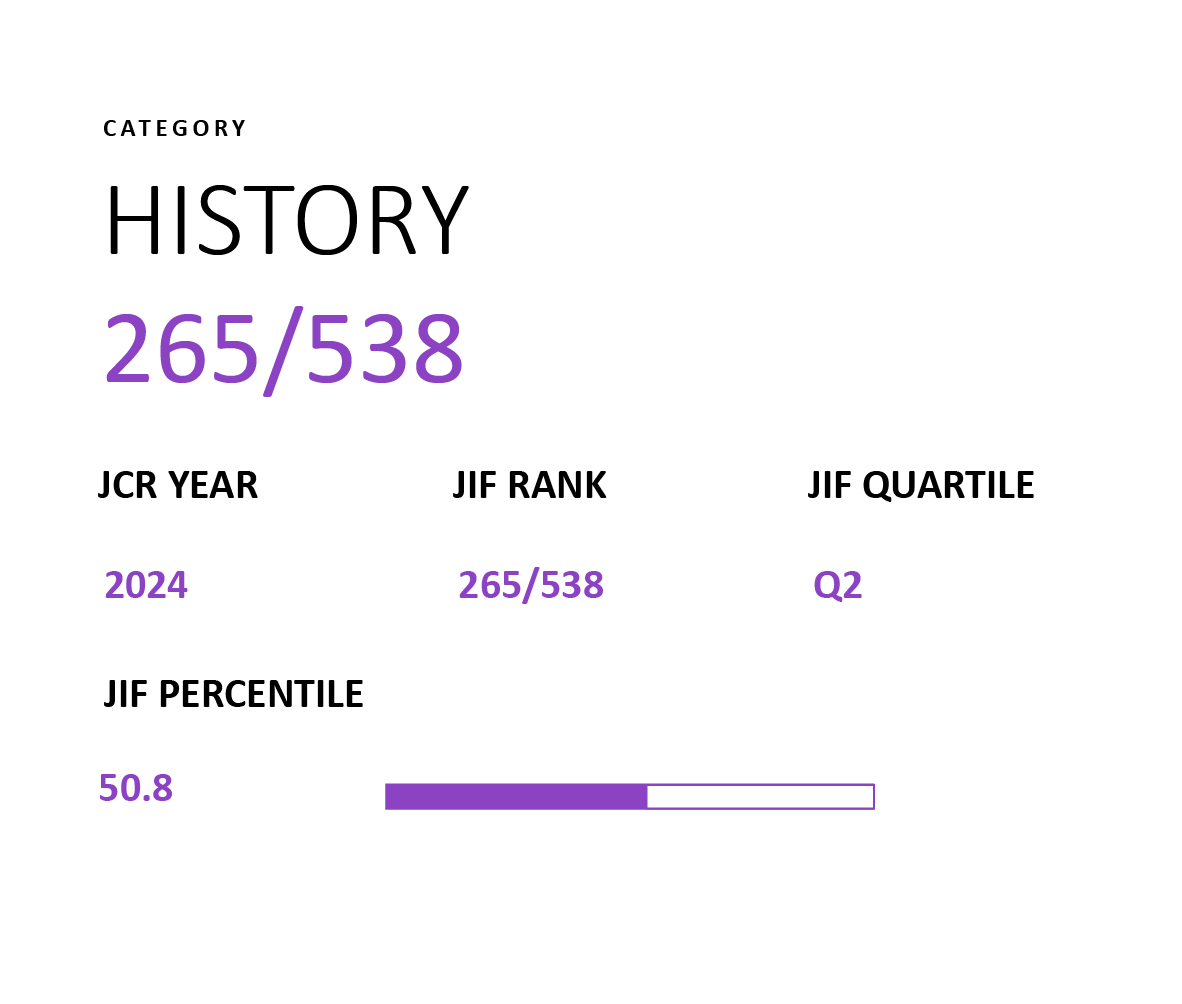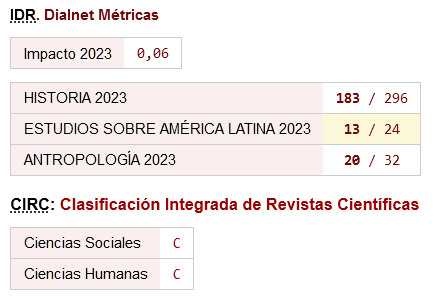The organization and political participation of the Aymara of the Puno region in Peru, between 2022 and 2023
DOI:
https://doi.org/10.46661/americania.11550Keywords:
Aymara peoples, political participation, communal organization, communal assembly, collective rightsAbstract
The Aymara people have played an important role in political organization and participation in the Puno region. Their communal model stands out as an example of participatory democracy and self-government based on the Andean cosmovision. This article analyzes the organization and political participation of Aymara communities from a decolonial perspective, focusing on their struggles for the recognition of their rights in contexts of resource exploitation and social conflict.
A bibliographic review was used that included scientific articles on the indigenous social mobilization during the months of December 2022 to February 2023, in which they were severely repressed by State forces. Social science research on communal organization and Aymara political participation was also reviewed. This methodology made it possible to analyze the dynamics of their self-management and political participation.
The findings highlight the central role of the community assembly as a key space for deliberation and decision-making, as well as the strategies of resistance and struggle for social justice in the face of mining exploitation in their territories. In addition, patterns of political participation at the local, regional and national levels were identified, reflecting their efforts to defend their collective rights, with special emphasis on their territorial and cultural autonomy.
To conclude, the organization and political participation of the Aymara communities of Puno are fundamental for the construction of an inclusive and sustainable governance model. This analysis underscores the need to strengthen their organizational structures and promote policies that respect their worldview and communal practices, contributing to a more egalitarian and participatory society.
Downloads
References
Constitución Política del Perú, 1993. https://www.congreso.gob.pe/Docs/files/constitucion/constitucion-noviembre2022.pdf
Comisión de la Verdad y Reconciliación, Informe Final: Perú, 1980 - 2000, UNMSM, PUCP, Lima, 2004, 316. https://www.cverdad.org.pe/ifinal/
Estenssoro, Juan Carlos "El simio de dios. Los Indígenas y la Iglesia frente a la evangelización del Perú, siglos XVI-XVII". Bulletin de l'Institut français d'études andines, Paris, 30 (3), 2001, 457. https://doi.org/10.4000/bifea.6956 DOI: https://doi.org/10.4000/bifea.6956
Francke, Pedro, "Políticas públicas y pobreza en el Perú de los noventa", en Sader Emir, El ajuste estructural en América Latina Costos sociales y alternativas, CLACSO, Buenos Aires, 2001, 46.
Iglesias Vázquez, Mónica, "Volver a la comunidad con Karl Marx. Una revisión crítica de la dicotomía comunidad-sociedad", Araucaria. Revista Iberoamericana de Filosofía, Política y Humanidades, Sevilla, 34, año 17, 2015, 116. https://doi.org/10.12795/araucaria.2015.i34.06 DOI: https://doi.org/10.12795/araucaria.2015.i34.06
Instituto Nacional de Estadística e Informática, Ministerio de Cultura, Perú perfil Sociodemográfico. Censos Nacionales 2017: XIII de Población, VII de Vivienda y III de Comunidades Indígenas, INEI, Lima, 2018, 32.
Instituto Nacional de Estadística e Informática, Resultados definitivos de los Censos Nacionales 2017: Puno, XII de Población, VII de Vivienda y III de Comunidades Indígenas, INEI, Lima, 2018, 38.
Instituto Nacional de Estadística e Informática (INEI), Informe técnico de nacional de empleo abril-junio 2022, INEI, Lima, 2022, 17.
Instituto Nacional de Estadística e Informática (INEI), Perú: Evolución de la pobreza monetaria 2014-2023, INEI, Lima, 2023, 64.
Instituto Nacional de Estadística e Informática, Ministerio de Cultura, Perú Encuesta demográfica y de salud familiar, nacional y departamental, INEI, Lima, 2023, 221, 225.
Jahuira Faustino A., "Identidad aymara caso del altiplano del Perú", Tesis de Maestría, FLACSO sede académica de Ecuador, 2003, 17-21.
La República, Lima, 23 Sept. 2001, p.4.
Linsalata, Lucía, "Las formas comunales de la política en el mundo rural aymara contemporáneo", Congreso de la Asociación Latinoamericana de Sociología. Universidad de Buenos Aires, Buenos Aires, 2008, 3-6.
Marx, Karl y Engels, Federico, La Ideología alemana, Pueblos Unidos. Montevideo, 1974, 83.
Valdivia, Néstor, El uso de categorías étnico/raciales en censos y encuestas en el Perú: Balance y aportes para una discusión, Grade, Lima, 2011, 168.
Montoya, Rodrigo, "Primera rebelión política en los últimos 200 años de las comunidades quechuas y Aymaras en Perú (2022-2023)". La Mula, Navegar Río Arriba, 2023, 9. https://navegarrioarriba.lamula.pe/2023/02/08/primera-rebelion/rodrigomontoyar/
Pajuelo, Ramón, Participación política indígena en la sierra peruana una aproximación desde las dinámicas nacionales y locales, Instituto de Estudios Peruanos (IEP), Lima, 2006, 71.
Rénique, José Luis, "La batalla por Puno violencia y democracia en la sierra sur", Debate Agrario, Centro de Estudios Sociales (CEPES), Lima, 10, 1991, 86.
Rivera Cusicanqui, Silvia, Pueblos originarios y Estado, Servicio Nacional de Administración de Personal (SNAP), Azul Editores, La Paz, 2008, 11.
Roldán, Julio, Perú mito y realidad, Tectum Wissenschaftsverlag, Baden-Baden, 2013, 64.
Ruelas Vargas, David, Los movimientos indígenas y la educación del siglo XX en el sur andino puneño, peruano, Revista Historia de la Educación Latinoamericana, Boyacá, Vol. 21 No. 33, 2019, 4. https://doi.org/10.19053/01227238.9354 DOI: https://doi.org/10.19053/01227238.9354
Tamayo Herrera, José, Historia Social e Indigenismo en el Altiplano, Editorial Trentaitrés, Lima, 1982, 20.

Downloads
Published
How to Cite
Issue
Section
License
Copyright (c) 2024 Lorena Patricia Gallardo Peralta, Yrma Magaly López Torres, Alicia Rain Rain

This work is licensed under a Creative Commons Attribution-NonCommercial-ShareAlike 4.0 International License.
Unless otherwise indicated, all contents of the electronic edition are distributed under a "Creative Commons Attribution-NonCommercial-ShareAlike 4.0" (CC-BY-NC-SA) licence. (CC-BY-NC-SA). You can consult the informative version and the legal text of the licence here. This must be expressly stated in this way when necessary.
In any case, the authors retain all rights to the published texts.









